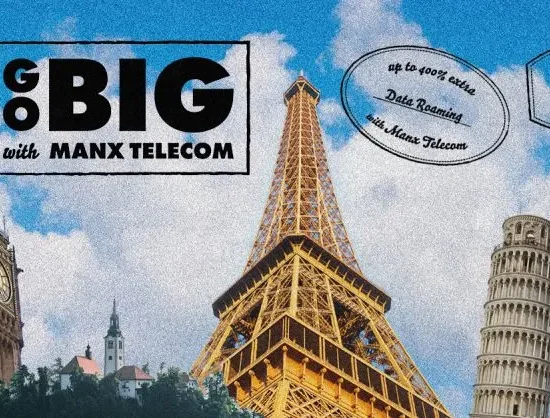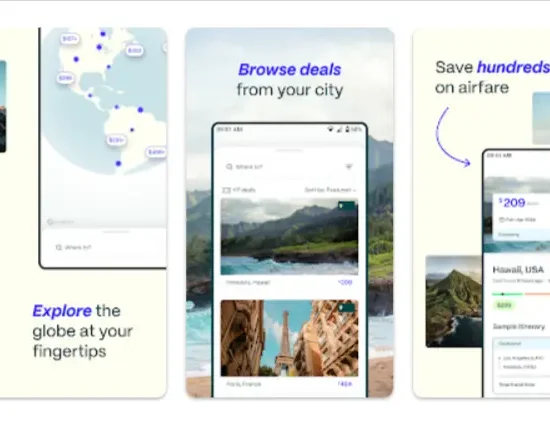
The Low-Cost Revolution: Changing Travel Forever
The travel industry has undergone a significant transformation in recent years, driven by the surge in popularity of budget-friendly travel options. This rise of low-cost travel has become a game-changer, fueled by factors like low-cost carriers (LCCs), which provide reduced amenities for lower fares, and the widespread use of travel apps. These forces have made travel more affordable and accessible, altering the behaviors of tourists and impacting destinations worldwide. This article explores how low-cost travel is reshaping the tourism industry.
Technological solutions have also made travel planning more efficient and personalised, allowing tourists to quickly find cheap options for flights, lodging, transportation, and more. Making travel more affordable and accessible not only opens doors for new demographics but also fundamentally alters travel behaviours and destination economies. This article explores the impact of low-cost travel and how it’s impacting the tourism industry:
Accessible Options Low-Cost Travel
Low-cost carriers have slashed the price tag on travel, making dream destinations a realistic possibility for a wider range of people. This fosters a more inclusive tourism industry, allowing individuals who may not have been able to afford travel previously to explore new cultures and broaden their horizons. Finding and comparing cheap flights is also much easier and straightforward, allowing people to choose the best option for their money. Low-fare finders also enable people to search for the most affordable flight dates for the destination they have in mind, whether they want to fly to Spain, France, Egypt, or Switzerland, among many other top travel spots. With cheaper fares, travellers are also encouraged to visit more locations, further stimulating the tourism industry.
Characterized by the original ‘no frills’ set, the likes of EasyJet, Ryanair, and Southwest have now revolutionized the way tourists and mainstream providers think about travel. As the LCC market evolves, it is driving the disaggregation of Full-Service Carrier (FSC) ticketing, creating new niches like low-cost long haul, and generally challenging what it means to be an airline carrier. Southwest Airlines is the original low-cost model pioneer within aviation and the wider travel and tourism industry.
The introduction of the Airline Deregulation Act within the domestic aviation market in the US in 1979 gave the airline an opportunity that was not present before. The Department of Transport no longer had control over minimum/maximum ticket prices or airline schedules and destinations. Southwest took advantage of this opportunity by undercutting its competition and focusing on a new stripped-back business model.
The airline made the argument for deregulation and other markets including Europe, and more have followed since due to the benefits it offers. Southwest’s model has been so successful that even other sectors have followed. Many major travel and tourism companies now run low-cost brands and models to take advantage of the constant demand for budget alternatives.
Attracting younger generations
Low-cost travel is also becoming a more viable option for younger holidaymakers, particularly Generation Z (Gen Z) members who are travel-savvy but don’t want to spend too much. Around 76% of Gen Zs say that finances are their biggest concern when it comes to travel, and two in three looks for the cheapest options when travelling. The influx of these tourists brought in by affordable travel undeniably benefits destinations. Businesses like hotels, restaurants, and local attractions experience a surge in activity. However, young budget travellers might spend less on accommodation and meals, potentially impacting the overall revenue generated from tourism. Despite paying less for certain aspects, younger tourists might compensate for this by spending more on local experiences and activities. Gen Zs are often in search of enriching local experiences to immerse themselves in the culture and are more willing to spend on these things, so even if they cut down on certain costs, they can still stimulate the economy.
Spontaneity and Independence Low-Cost Travel
Low fares have ushered in an era of impulsive travel, with weekend getaways and shorter trips becoming increasingly popular. Some travellers are less likely to opt for traditional all-inclusive packages, preferring the flexibility and potentially lower costs of independent travel planning. Online resources have also empowered budget travellers to become their own travel agents, booking flights, accommodations, and activities directly, bypassing traditional travel agencies. Tech innovations also enable tourists to search for non-traditional lodging options that can be more affordable. For instance, Airbnb has been a major disruptor in the travel industry, providing travellers with alternative accommodations that can be more budget-friendly than hotels. The platform creates a more personalised approach using machine learning to connect tourists and hosts, enabling travellers to find a place that suits their needs and funds. These valuable insights enable independent planning and provide more room for flexibility.
Apps Reshape Travel
Travel apps have been heavily adopted by tourism-related companies operating in the low-cost market. Low-cost companies that are not developing and investing in app technology stand to become laggards within their respective sectors. Apps shape travelers’ spending habits by sending push notifications regarding last-minute deals while allowing for personalization.
Advancements in technology have seen a rise in the popularity of the sharing economy. The sector has changed the way travelers book trips and the business model poses a threat to many different operators. Airbnb and Uber have revolutionized the interaction between buyers and sellers and the asset-light business models these firms have adopted have resulted in low prices being offered to the market. Internally, apps reduce overheads by instantly solving customer queries with ‘frequently asked questions’ sections and allowing companies to create competitive advantages by displaying innovation through their app development, such as by incorporating advanced technologies like AI.
Low-cost evolution first happened within the aviation sector and has now occurred across the majority of the travel and tourism sectors. There is a magnitude of different ways firms can make cuts to become low-cost. Car hire firms have removed navigation devices from vehicles and offer economy option cars. Hotels have diversified to offer basic hotel rooms offering the bare necessities in a smaller room with fewer amenities.
The future of low-cost travel
Low-cost travel has undoubtedly revolutionised the tourism industry, making travel a more affordable and enriching experience for a wider range of people. While the potential for economic stimulation and accessibility is exciting, there may be concerns surrounding the sustainability of increased travel and its impact on local communities due to the influx of tourists. The next challenge for low-cost carriers and the tourism industry as a whole is to find the balance between encouraging responsible travel practices and behaviour while still providing accessibility that draws in travellers.









